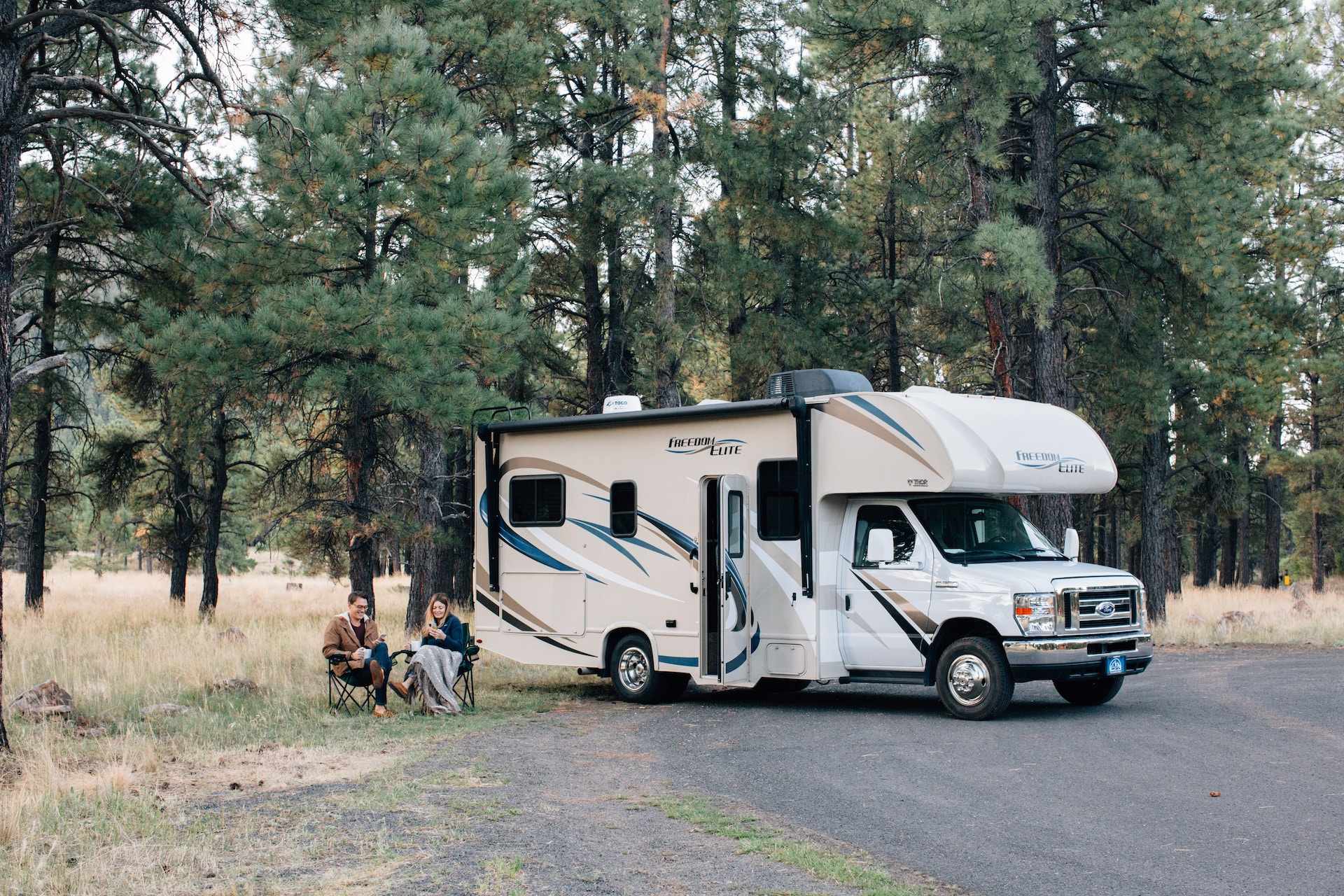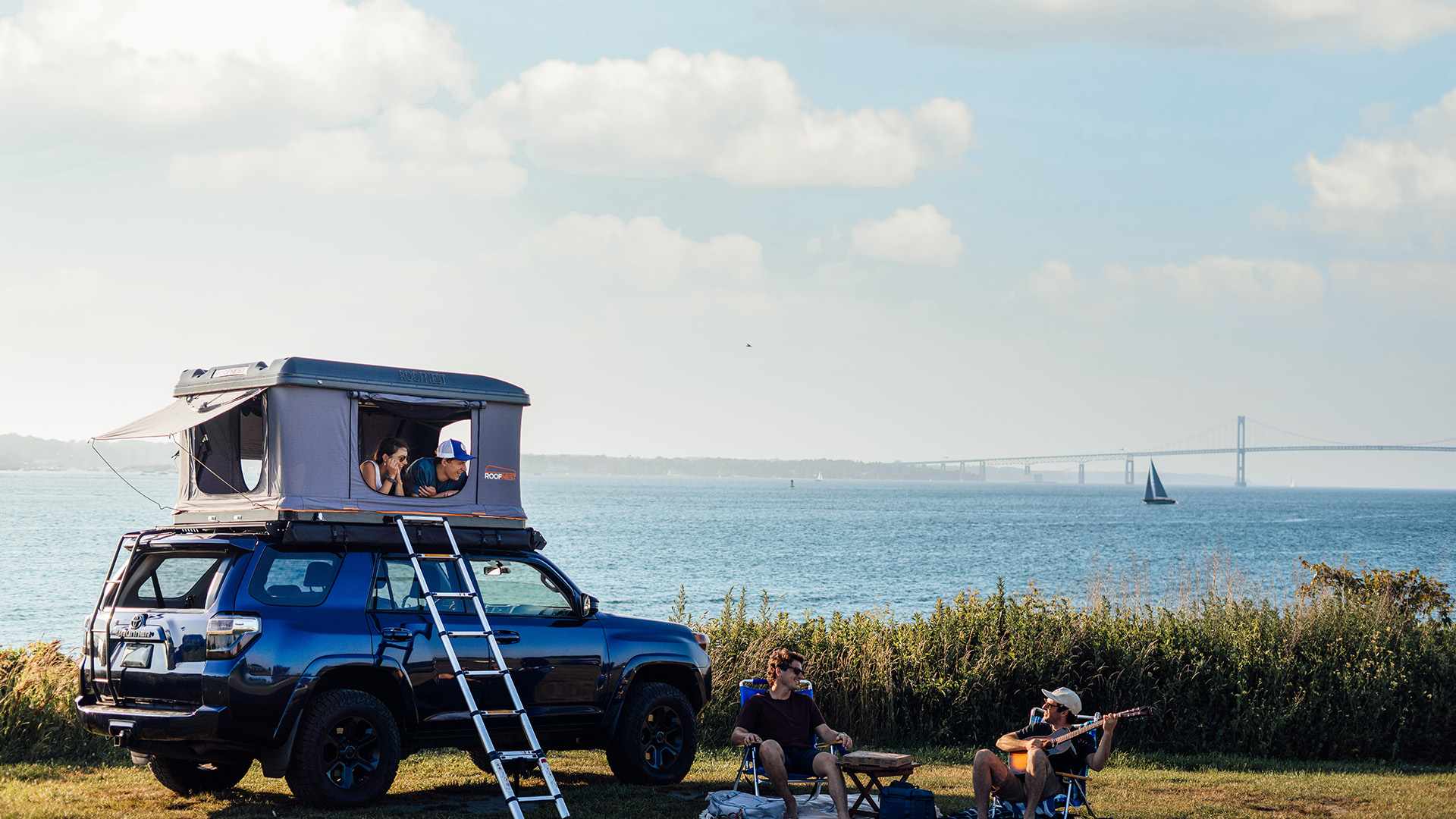 RV renting: what’s it like having your RV go on travel adventures without you? My wife Lindy put it best, as she often does: “It’s like watching your child pull out of the driveway in the car by herself for the first time…Except the car is your child.”
RV renting: what’s it like having your RV go on travel adventures without you? My wife Lindy put it best, as she often does: “It’s like watching your child pull out of the driveway in the car by herself for the first time…Except the car is your child.”
Our Winnebago Travato Roxanne had a busy summer with us, but she’s having an even busier fall so far without us. The Carolinas have been popular, as have the Shenandoah Mountains and Maine. She’s headed down to Texas in November. It’s a little odd to look out in the driveway and see a strange car with out-of-state plates instead of our shiny red thang. But that’s what we signed up for.
Renting Out Your RV: Why Do It?
Peer-to-peer rental was always on our radar screen when we were thinking of buying an RV. There aren’t too many Class B vans available for rent on this side of the country, so we knew there was a market. How much of a market was a big unknown, as was the amount of effort it would take to keep rentals going. So instead of building the RV purchase on the assumption we’d rent it out, we decided the rental fees would just help us defray our costs on occasion.
There was another consideration: getting better use out of the asset. Longtime readers know I snew my car several months ago because I just didn’t use it. Our nation’s entire transportation infrastructure is based on the reality of most cars being parked, unused, almost all of the time.

I’m a bit of a transit geek: I ride my bike and the train to work every day. I’ve seen the changes that transportation on demand, car and bike sharing have begun to make in cities. I’m excited about the future the co-founder of Lyft described this week, with more frequent use of vehicles and far less land devoted to empty cars. It will take time, maybe even a generation, for this shift to reach suburbs like the one we live in. So I didn’t want to perpetuate the cycle with yet another underused asset on four wheels, sitting idle most of the time.
Renting means other people who only need an RV once in awhile don’t have to buy their own. It means we keep the engine running, the tires turning and the fluids flowing more often. We don’t have to exercise Roxanne just because she’s been sitting around.
Renting Out Your RV: How to Do it

We use Outdoorsy for all of our rentals. The site’s reservation system keeps track of our rental dates and lets us block off days that we plan to use the RV. All of the needed documents, including contracts and checklists, are provided. Outdoorsy collects a security deposit from the renter and handles credit card processing, including releasing all or part of the deposit once we’ve checked the van back in. There’s a secure mailbox for communicating with renters and potential renters. And the company provides $1 million in insurance for each rental. So there’s no need to get some kind of commercial extension on our own insurance, and the renters don’t need to find their own.
We have the ability to change dates and prices. We’ve offered friends and family a 50 percent discount on the rental fees and can change a quote to make that happen. We can extend or shorten a rental that’s already in progress. And the money just hits our bank account automatically — minus a 15 percent fee — a couple of days after the rental begins.
Renting Out Your RV: Who You’re Renting To

Our renters so far have been couples with children still living at home, or retirees. They don’t own RVs, though some are thinking about buying one someday. Most have never even used an RV before.
That’s a steep learning curve! I start even before pickup day, asking for a sense of where the renters will be traveling and what kind of stops they’ll make along the way. I’ll give input about what kind of campgrounds have worked best for us and where to boondock. I make a mental note of the how, who and where of each rental so I can make sure I focus on the right features of the van. We try to allow 30-45 minutes for a walk-through, but there’s a lot of information to pack into that short period of time. We also keep all of the owners manuals in the van and have started providing a printed copy of my post about water and waste.
Think of everything you’d need to explain to someone staying in your house for a weekend without you. Now imagine you own a van and are lending it to someone who has never driven it before. In fact, make that a person who’s never driven a van at all. Combine those two situations, and that’s basically what our orientation process looks like.
Things will go wrong. Renters will forget things — it’s human nature, especially if you learn by doing. And they’ll have questions they didn’t know to ask when the RV was still parked in the driveway.
Renting: Worry About Your Rig?
We don’t spend a lot of time thinking about the worst cases. What happens if someone wraps our second home on wheels around a tree? Or gets a case of “it’s a rental” and decides to go off-roading or throw a kegger inside for some friends? Outdoorsy’s screening process and the ability to talk to renters before, during and after generally take care of those worries. We get reassurance that these folks are renting our second home, and they tend to bring it back at least as clean as they found it. One family even sent us photos of Roxanne from along their journey!
Instead, we worry more about the renters and their experience.
Our refrigerator door came off once. While renters were driving. We now know this is because of a design flaw that’s pretty easily corrected with a screwdriver and a hacksaw. It must have been terrifying, and I’m not sure what we would have done if it happened to us. I fixed it after they got back.
There are buzzers and sensors all over the place that can be a nuisance if you don’t know how to turn them off. And there’s a switch that shuts off all power to the coach — a switch that’s really easy to tap with a foot if you’re not careful.

Renting out the van means being ready for phone calls and texts about how this or that thing works. It just comes with the deal. You’re worried about living up to your end of the bargain on what ends up being a pretty expensive vacation for the renter. There’s a system for owners and renters to rate each other, so your reputation is on the line. And more broadly, as owners of RVs and advocates for the lifestyle, you don’t want complications to put anyone off ever driving an RV again.
Renting: Lessons Learned
We’ve learned a lot about how to screen potential renters. You reserve the right to modify, approve or deny any rental. We’ve also learned — the hard way — that it’s best for us to allow at least a week if not longer between rentals. It takes awhile to walk through and make sure everything is tidy. To do any repairs or scheduled maintenance. And if we were the last family to use Roxanne, we need an hour or two to round up all of our things and bring them into the house. (We provide cleaning supplies and toilet paper, but the linens, cookware and dishes are up to the renter.)
Renting: Bottom Line
Expectations are important. For the owner, you have to recognize and acknowledge that things will go wrong. These could be RV things, van things, user error things or any combination of the above. Your ability to keep calm and keep looking forward will be essential. For the renter, you have to understand that this is a complicated, expensive piece of equipment that depends on proper use for you to get the most enjoyment out of it.

For us, at the moment, a little extra stress and uncertainty are a worthy price for the extra income and asset use that they bring. I can’t say that’s always going to be true. But we also know that a rental is what sparked our interest in being an Winnebago Travato family in the first place. So we’re glad to return the favor once in awhile too.








